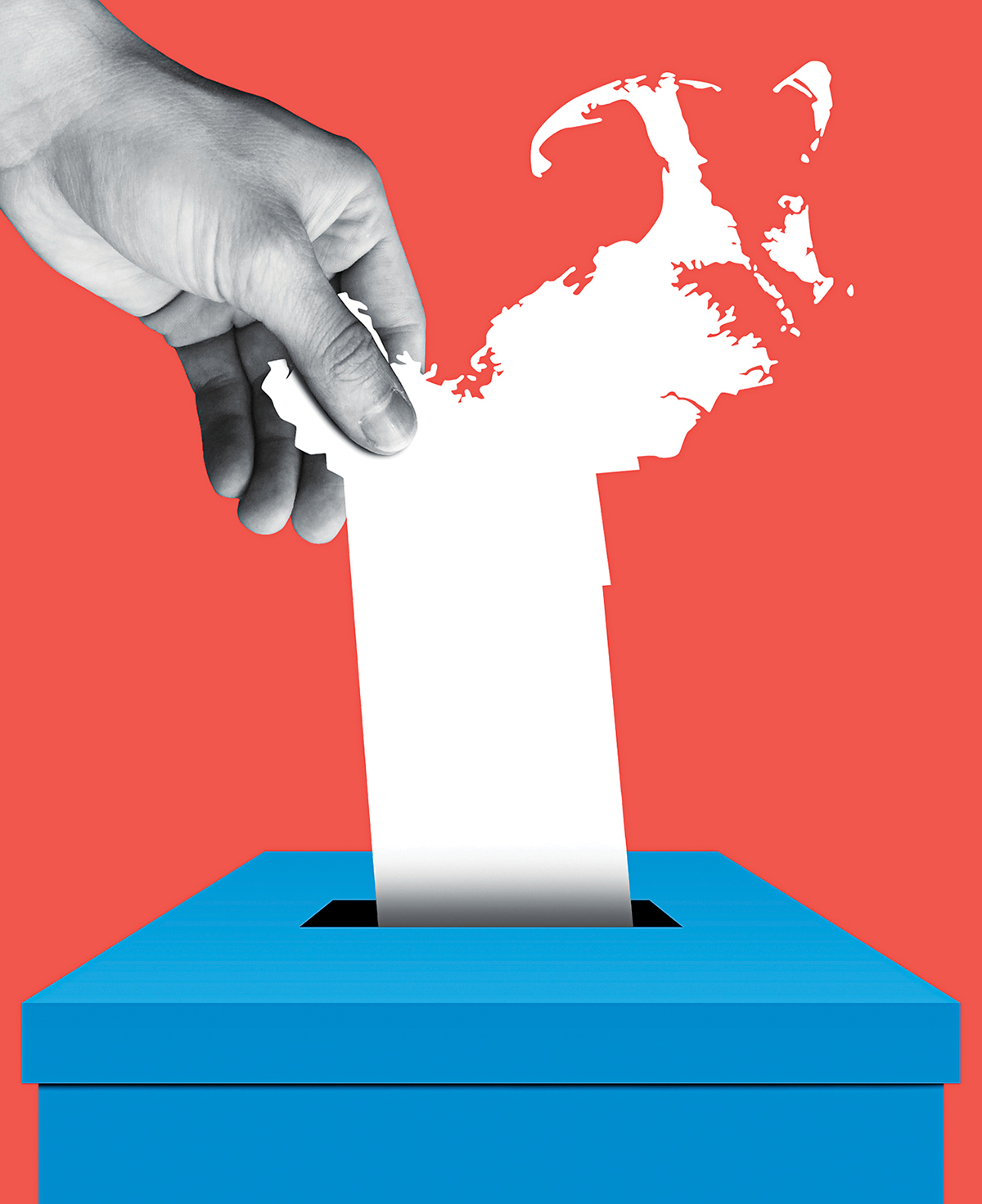Yea or Nay? A Guide to Massachusetts’ Ballot Questions

Illustration by Matt Chase
In a few short weeks, our long, ugly year of politics will reach its grisly conclusion. At this point in the election cycle, you may be convinced that a vote for any of this year’s presidential candidates is a vote against sanity. But rest assured, there’s still salvation in the voting booth: The 2016 ballot is stacked with four juicy initiatives that could change the course of our state. And in these winner-take-all bouts of participatory democracy, every vote counts. From gambling and getting high to cage-free eggs and charter schools, it’s time to choose.
— Question 1 —
Should the state create one additional permit for a slots-only gambling parlor?
What You Need to Know: The proposal requires that this theoretical den of one-armed bandits be built “adjacent to and within 1,500 feet of a race track,” a stipulation that caused an early uproar among critics who argued that East Boston’s Suffolk Downs is the only business that could satisfy such a prerequisite. For now, the state’s sole slots-only facility is the Plainridge Park Casino, open 24 hours.
Notable Supporter: Eugene McCain, a developer who lives in Thailand and has his eyes on Eastie.
Notable Opponent: Celeste Myers, a founding member of No Eastie Casino.
— Question 2 —
Should the state add more charter schools?
What You Need to Know: This is perhaps the most fiercely contested ballot initiative of 2016, with pro- and anti-charter factions pumping millions of dollars into ad campaigns to influence the electorate. If approved, this proposal would clear the way for the Board of Elementary & Secondary Education to add up to a dozen new charter schools throughout the state each year. If the number of applicants to open new charter schools exceeds 12, priority will be given to low-performing districts where demand for additional schools is high.
Notable Supporter: Governor Charlie Baker.
Notable Opponent: Boston Mayor Marty Walsh.
— Question 3 —
Should the state ban the sale of eggs and meat from animals confined in a cruel manner?
What You Need to Know: This proposal—which applies specifically to breeding pigs, calves raised for veal, and egg-laying hens—defines cruel confinement as any means that prevents the animals from lying down, standing up, extending their limbs fully, and turning around. Opponents contend that the bill is pointless, as Massachusetts isn’t a hotbed of industrial farming. Supporters argue that the crux of the proposal is that it will prohibit the sale of products harvested from cruelly confined animals, whether they were raised here or elsewhere.
Notable Supporter: Matthew Bershadker, president of the American Society for the Prevention of Cruelty to Animals.
Notable Opponent: Rich Bonanno, president of the Massachusetts Farm Bureau Federation.
— Question 4 —
Should the state legalize and tax marijuana?
What You Need to Know: If this initiative passes, marijuana—similar to alcohol—will be legal only for those 21 years of age and older. People would be able to use it, grow it, and possess it, and licensed shops would be able to sell it. For all sales, a 3.75 percent state excise tax would be added to the state’s standard 6.25 percent sales tax, and cities and towns would have the option to add an additional 2 percent local tax. By some estimates, legal pot could be a billion-dollar industry in the Bay State by 2020.
Notable Supporter: Boston City Council President Michelle Wu.
Notable Opponent: Massachusetts Attorney General Maura Healey.

